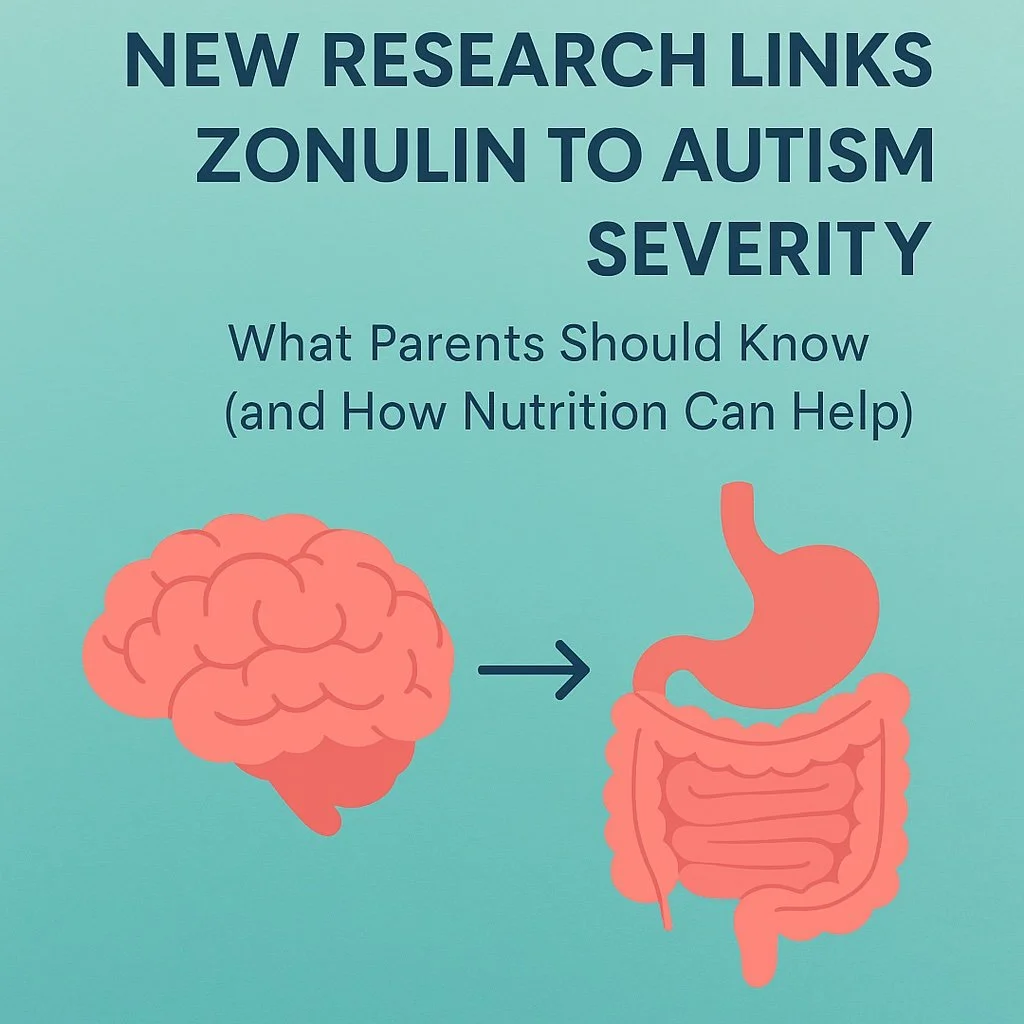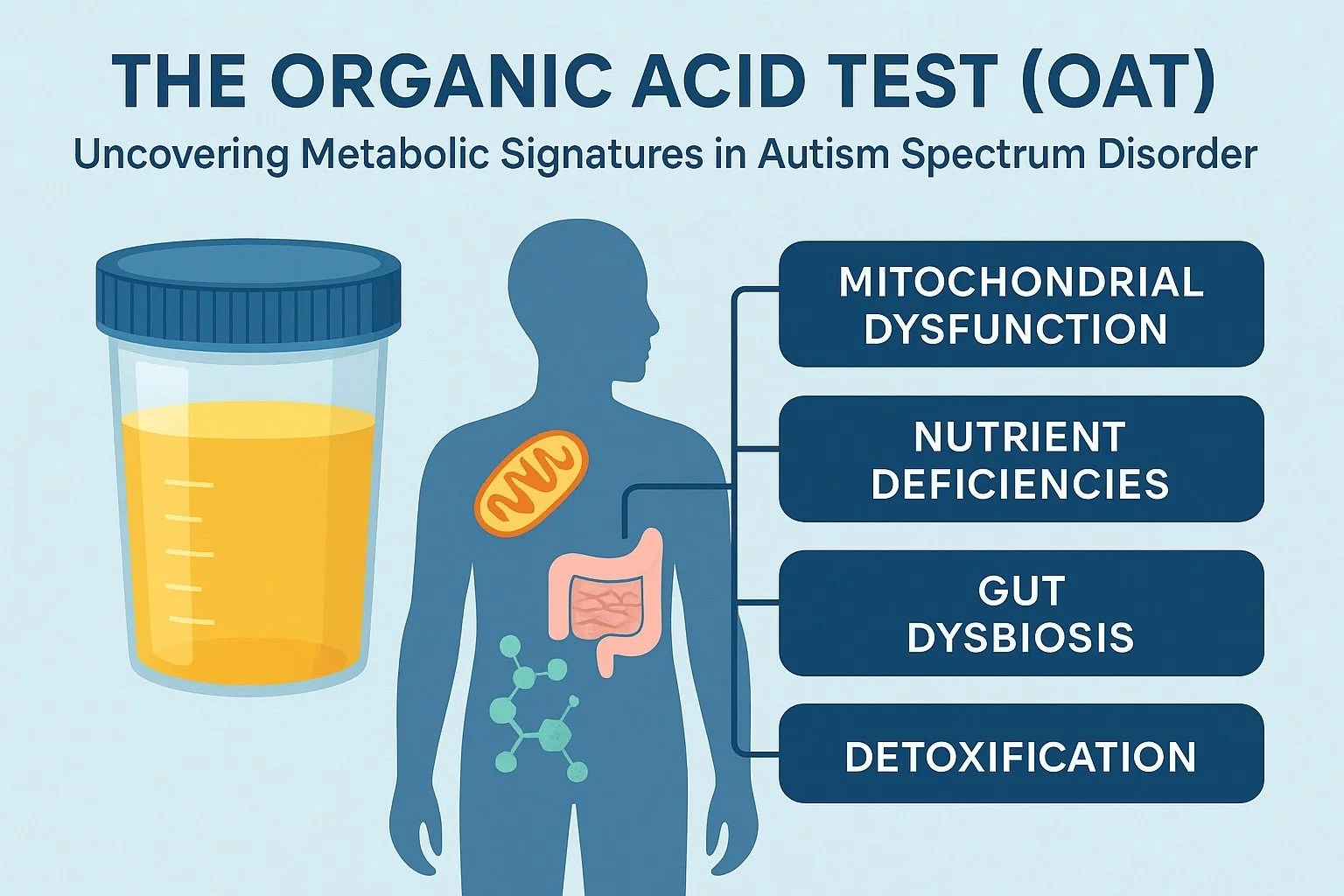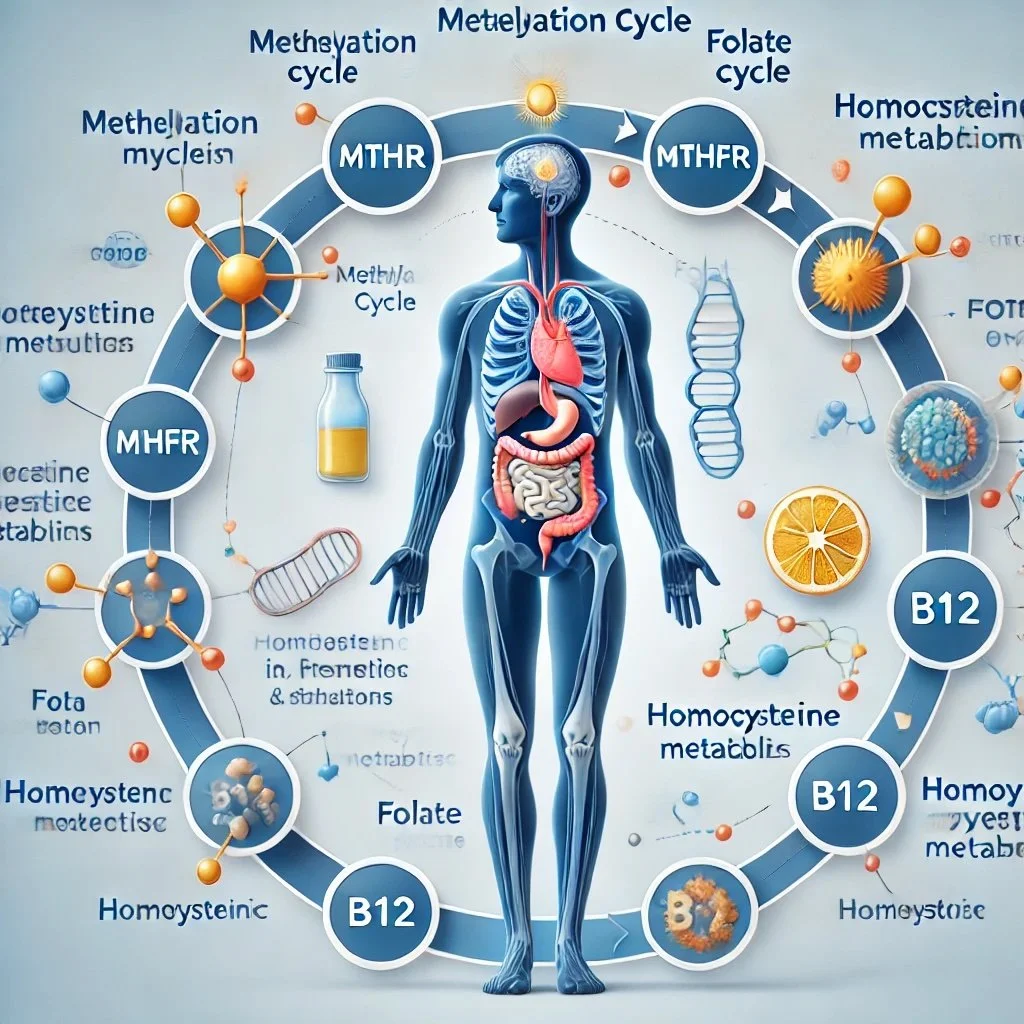A 2025 study links elevated zonulin levels to autism severity, reinforcing the gut-brain connection. Discover how functional nutrition can naturally support barrier integrity and improve digestive and behavioral outcomes in children with autism.
Read MoreLearn why leucovorin (folinic acid) alone cannot address the root causes of autism.
Read MoreDiscover the four layers of healing that transform health from the inside out — gut repair, detox support, mitochondrial balance, and nervous system retraining — for lasting improvements in mood, cognition, and overall wellness.
Read MoreDiscover how the Organic Acid Test (OAT) reveals hidden metabolic imbalances in autism, including mitochondrial dysfunction, gut dysbiosis, and detoxification stress — and how to use OAT results to personalize nutrition and support root-cause healing.
Read MoreThe FDA’s recent move to approve leucovorin calcium for cerebral folate deficiency (CFD) brings new hope for a metabolic approach to autism. Explore how prescription leucovorin and over-the-counter folinic acid compare, the underlying folate biology, and how functional medicine clinicians can responsibly integrate this new option into autism care protocols.
Read MoreIn this blog, we’ll break down the statistics, highlight the difference between boys and girls, explore the web of genetic and environmental factors that may be driving the rise, and share my personal journey of watching autism go from barely mentioned in psychology courses to profoundly shaping both my professional life and my family.
Read MoreIn September 2025, U.S. officials announced plans to caution against widespread acetaminophen use in pregnancy, citing research suggesting possible links to autism and ADHD. While industry groups argue that the evidence isn’t definitive, this marks a shift in tone: it is now being acknowledged and brought to attention that prenatal acetaminophen exposure could carry developmental risks.
Read MoreWhile every child is unique, one common thread I see over and over in my practice is this: many children with autism have underlying nutrient deficiencies that, when corrected, can significantly improve mood, behavior, focus, sleep, and even speech.
Read MoreTeenagers today are busier than ever. Between early morning practices, late-night homework, weekend tournaments, and the pull of fast food runs with friends, it’s no surprise that food choices can become reactive rather than intentional. As a parent, it can feel frustrating to see your once-nutrition-conscious child now opting for vending machine snacks or skipping breakfast altogether.
Read MoreRecent studies suggest that these forms of folate may play a crucial role in improving speech, reducing aggression, and optimizing cognitive development in individuals with autism.
Read MoreResearch increasingly links these foods to a variety of chronic health conditions, including metabolic disorders, obesity, gut health issues, and even cognitive and behavioral challenges. Despite their convenience, ultra-processed foods may pose long-term risks to children's well-being.
Read MoreThis article will explore the root causes behind common childhood health issues such as behavioral concerns, constipation, GERD (acid reflux), anger and aggression, anxiety, and lack of focus and attention. These root causes may include gut dysbiosis, nutritional deficiencies, underlying infections, viruses, heavy metal or environmental toxicity, and food sensitivities.
Read MoreMethylation is a crucial biochemical process that affects nearly every system in the body, influencing detoxification, neurotransmitter production, cardiovascular health, and DNA expression. For individuals with an MTHFR (methylenetetrahydrofolate reductase) mutation, optimizing methylation becomes particularly important, as genetic variants can impair the body's ability to process folate efficiently. While taking methylfolate is a great first step, additional support may be necessary to enhance overall methylation function and prevent downstream effects on health.
Read MoreOne of the most powerful ways to support your child’s brain development is through proper nutrition. The foods children eat play a crucial role in cognitive function, memory, learning, and focus.
Read MoreProper nutrition is critical for children’s growth, brain development, and overall health. A well-balanced diet provides the necessary vitamins and minerals to support strong bones, a robust immune system, and optimal cognitive function. However, many kids fall short of getting essential nutrients due to picky eating, processed food consumption, or dietary restrictions.
Read MoreIf your child struggles to gain weight or maintain a healthy growth trajectory, it can be a source of concern and frustration. Whether due to a naturally high metabolism, picky eating habits, or underlying health challenges, helping your child achieve a healthy weight requires thoughtful planning and a focus on nutrient-dense, whole foods. This blog will guide you through strategies to nourish a “skinny kid” effectively, with an emphasis on amino acids, healthy fats, caloric intake, and practical recipes.
Read MoreTwo hundred years ago, the average American consumed just ½ teaspoon of added sugar per day. Fast forward to today, and the numbers are staggering: the average adult American consumes 19 teaspoons daily, while American children are consuming a shocking 34 teaspoons of sugar every day. These figures far exceed the American Heart Association’s recommendation that children should consume no more than 6 teaspoons of added sugar daily.
Read MoreThere are many natural alternatives to treating ADHD which also improve optimal health status. Looking for specific food intolerance’s and micronutrient deficiencies is especially helpful.
Read MoreProbiotics are gaining attention for their role in improving gut health, which is intricately connected to brain function. For individuals with autism, addressing gut-brain axis imbalances through probiotic supplementation can be a valuable approach.
Read MoreOutdoor play and physical activity are universally important for children, but they hold particular value for children with Autism Spectrum Disorder (ASD) and Attention Deficit Hyperactivity Disorder (ADHD). The natural environment and movement-based activities provide a multitude of benefits ranging from enhanced physical health to improved emotional regulation and cognitive functioning. This blog explores the scientific underpinnings of these benefits, providing insights into how outdoor play can support the unique needs of children with ASD and ADHD.
Read More



















